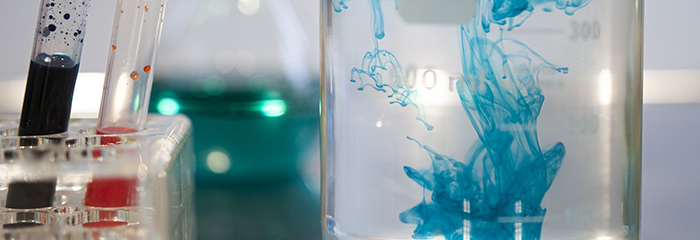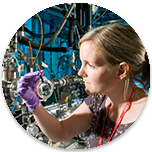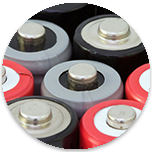____________________________________
Industrial Liaison Group:
Tel: +44 (0) 1235 778797
E-mail: industry@diamond.ac.uk
Unravelling the chemical and electronic properties of compounds is a real challenge due to chemical heterogeneity, sample nature and sensitivity to various conditions (gas flow and composition, temperature, pressure). Operando studies on chemical processes is crucial to design new reactions and manufacturing processes and it provides fundamental insights into the science of chemistry.
Diamond provides specialist analytical techniques and a wide range of sample environments to make complete characterisations of various materials at different physical states and understand structure-function relationships.

Organic Chemistry
Inorganic Chemistry
Physical Chemistry
Processing





Zinc oxide (ZnO) is a highly desirable multifunctional material possessing superior electronic, structural and morphological properties which also exhibits high chemical stability, a broad range of radiation absorption and high photostability. For this reason, ZnO is used in n-type semiconductors, solar cells, photocatalysts, sensing materials and antiseptic additive compounds.
Many believe that the defects present in ZnO’s structure are a key factor in influencing aspects of its performance and control of specific defect types could be used to enhance its functionality.

Over recent years we have seen a global move towards renewable energy not only to support increased demand for energy but also to reduce the production of carbon dioxide, a common pollutant from burning fossil fuels. Engineers and scientists are continually looking at ways to store this energy during periods of low user consumption (day-time) and to maximise its usage during periods of high demand (evening-time).
Read more...Diamond Light Source is the UK's national synchrotron science facility, located at the Harwell Science and Innovation Campus in Oxfordshire.
Copyright © 2022 Diamond Light Source
Diamond Light Source Ltd
Diamond House
Harwell Science & Innovation Campus
Didcot
Oxfordshire
OX11 0DE
Diamond Light Source® and the Diamond logo are registered trademarks of Diamond Light Source Ltd
Registered in England and Wales at Diamond House, Harwell Science and Innovation Campus, Didcot, Oxfordshire, OX11 0DE, United Kingdom. Company number: 4375679. VAT number: 287 461 957. Economic Operators Registration and Identification (EORI) number: GB287461957003.